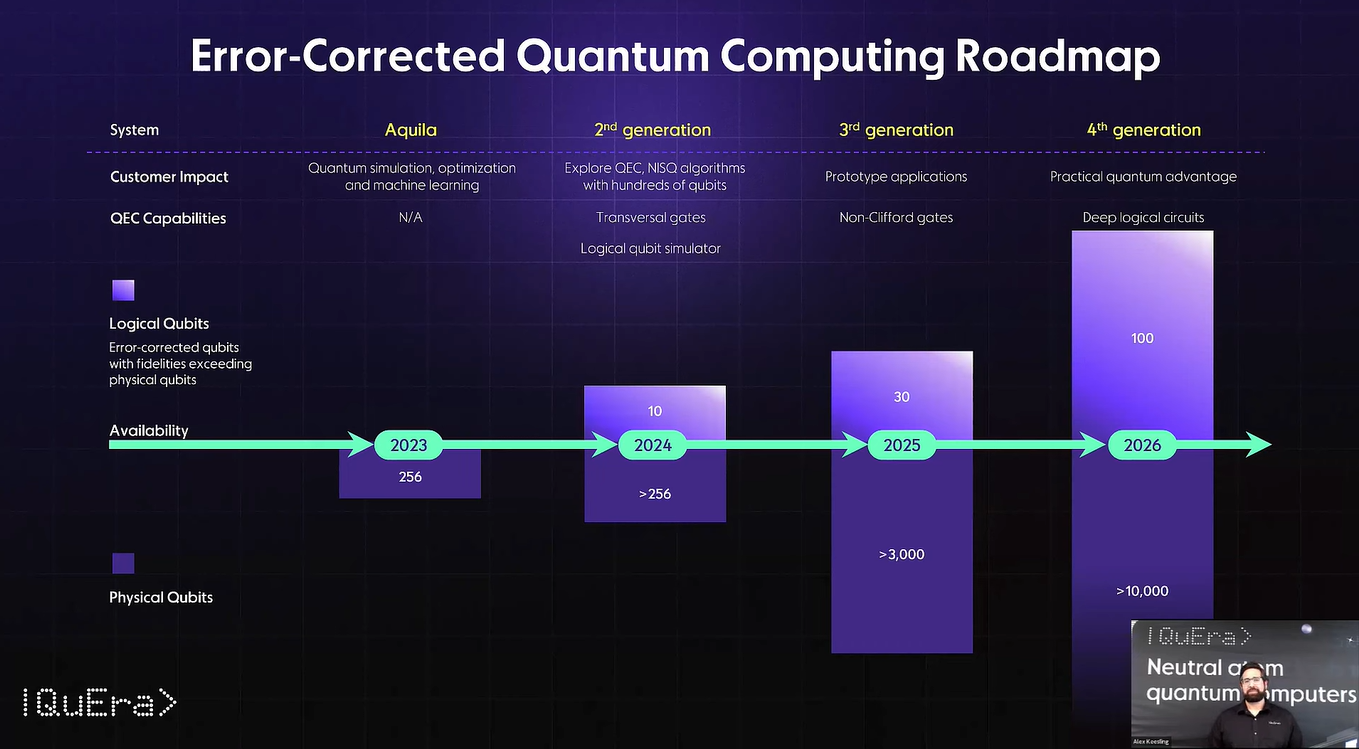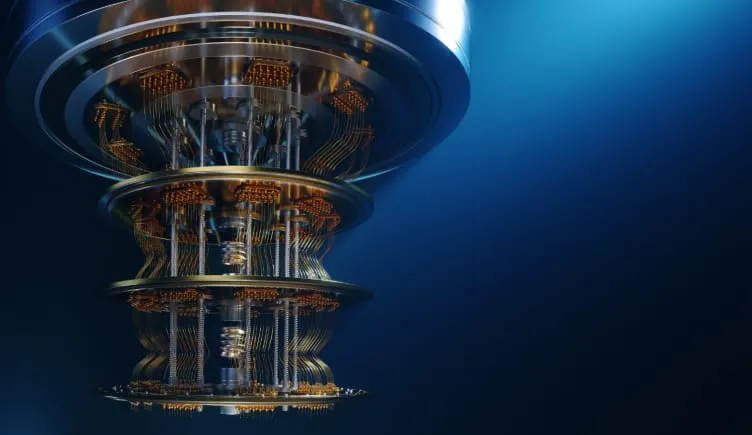QuEra is a US-based firm that specializes in building fault-tolerant quantum computers. These are quantum computers that can correct errors that occur due to noise and interference in the quantum system.
Boston-based QuEra Computing has ambitious plans to launch a 10,000 qubit quantum computer by 2026, which could beat the fastest supercomputers. In a press release, the company has unveiled its roadmap for the near future, including a new machine with 10 logical qubits by the end of the year.
Quantum Errors
Quantum computers are the next frontier of computing that can theoretically leave today’s supercomputers biting the dust. However, scientists have yet to solve the problem of high error rates in them. While silicon-based computers error are at the rate of one in one billion bits, quantum computers can have one failure in every 1,000 quantum bits (qubits) they use.
This is due to the nature of qubits, the data storage units of quantum computers. Unlike conventional bits that can be 0 or 1 at a time, qubits can exist in superposition states, simultaneously occupying values of 0 and 1 While this allows calculations at a greater scale. Qubits are incredibly sensitive to their surroundings. Even minor disturbances, such as heat, vibration, stray light, or electromagnetic fields, can alter their quantum states.They are error-prone, limiting their adoption in real-world scenarios.
QuEra’s Unique Approach Of Noise Mitigation
Quantum computing is a promising field that aims to solve complex problems faster than classical computers. However, quantum computers are prone to errors due to noise and interference from the environment. To overcome this challenge, various methods have been developed to reduce the error rates in quantum computations.
One method is to exploit quantum entanglement, a phenomenon where two or more quantum particles share the same information and state. By entangling multiple qubits, the basic units of quantum information, the same data can be stored redundantly and checked for consistency. This way, errors can be detected and corrected before they affect the outcome of the computation. QuEra, a leading quantum computing company, is using this method to build scalable and reliable quantum computers.
Another method is to use logical qubits, which are groups of physical qubits that are encoded with an error correction code. The code allows the logical qubit to perform a self-check and correct any errors that may occur in the physical qubits. This method increases the robustness and accuracy of quantum computations, but also requires more physical qubits and resources. Google’s Quantum AI lab has achieved a low error rate of 2.9 percent using this method, while the University of Oxford has achieved an even lower error rate of less than 0.01 percent. However, the latter only used two-qubit gates, which are not sufficient for practical quantum applications.
QuEra has combined both methods to achieve a remarkable feat: a quantum computer with 48 logical qubits and an error rate of 0.5 percent. This is the highest number of logical qubits ever demonstrated on a quantum computer, and also a very low error rate for such a large system. QuEra’s quantum computer is thus one of the most advanced and reliable in the world, and a significant step towards realizing the full potential of quantum computing.
QuEra’s Roadmap
The company has revealed its roadmap for the next few years, which includes launching three quantum computers with different levels of error correction and computational power.
The first one will be launched later this year, and it will have 256 physical qubits and 10 logical qubits. A logical qubit is a group of physical qubits that work together to form a stable unit of quantum information. This computer will not be able to do any useful quantum calculations, but it will allow software developers to test their code for future quantum computers.
The second one will be launched in 2025, and it will have 3,000 physical qubits and 30 logical qubits. This computer will be a stepping stone toward the company’s main target.
The third one will be launched in 2026, and it will have 10,000 physical qubits and 100 logical qubits. This computer will be the company’s flagship product, and it will be able to compute without errors and outperform today’s supercomputers.
QuEra is not the only company that is working on fault-tolerant quantum computing. IBM also showed off its error-correction technology with a 127-qubit Heron chip last year. However, IBM’s commercial launch is expected by the end of the decade.
Discover more from WireUnwired Research
Subscribe to get the latest posts sent to your email.




